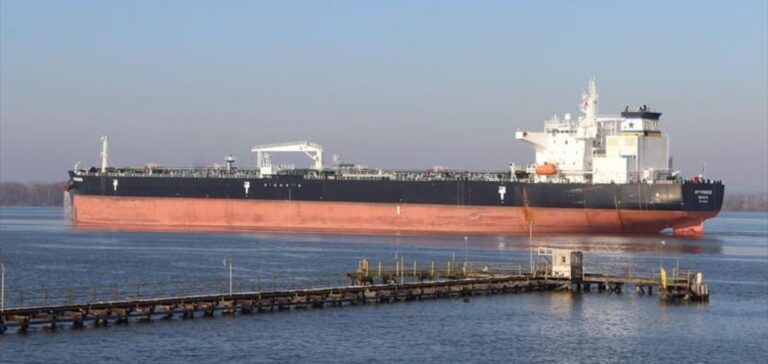Israeli Prime Minister Benjamin Netanyahu accused Iran of being responsible for the attack on an oil tanker, the Campos Square, linked to Israeli businessman Eyal Ofer. According to the Greek company Eletson, which operates it, the ship was hit by “an airborne object” on February 10 in the Arabian Sea. The company said the damage was minor and that the ship and crew were safe and continuing on their way.
Netanyahu’s accusations
Benjamin Netanyahu said in the Council of Ministers: “Last week, Iran again attacked an oil tanker in the Persian Gulf region and dealt a blow to the international freedom of navigation. He added that Iran’s “acts of aggression do not stop”. However, Iran has not yet commented on the accusation.
A ship linked to Eyal Ofer
The Liberian company that owns the Campos Square is linked to Zodiac Maritime, a British shipping company founded and headed by Israeli businessman Eyal Ofer. He also owns the real estate and logistics company Ofer Global. He is considered one of the richest men in Israel.
A war in the shadows
Israel and Iran have been engaged in a shadow war for several years. The attack on Campos Square is not the first of its kind. In November 2022, Israel and the United States accused Tehran of being behind a drone attack on an oil tanker operated by a company owned by Idan Ofer, the brother of Eyal Ofer, off the coast of Oman. In 2021, the two countries had already accused each other of attacks on each other’s ships, in a theater ranging from the eastern Mediterranean to the Indian Ocean.
Iran, Israel’s sworn enemy
Iran is the bête noire of the head of the Israeli government. The two countries have been in conflict for several years due to Israel’s concern over Iran’s nuclear program. The Islamic Republic has accused Israel of being responsible for several sabotages that targeted its uranium enrichment activities or the elimination of several researchers linked to its nuclear program. In return, Israel has accused Iran of attacks on each other’s ships.





















